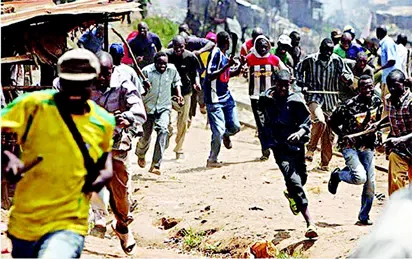The recent surge of condemnations from the United States Congress concerning violence perpetrated by Boko Haram in Nigeria has revived a heated debate about whether the country is witnessing a deliberate “Christian genocide”. Senator Ted Cruz, in a statement on October 8, 2025, accused Nigeria of permitting a “massacre” against Christians, referencing over 100,000 deaths since 2009 and the destruction of 18,000 churches. This perspective, mirrored in a U.S. Senate bill aimed at accountability for religious freedom violations, has elicited prompt counterarguments from Nigerian officials. The Federal Government, in a press release dated September 28, 2025, dismissed these assertions as a “gross misrepresentation”, stressing that terrorists indiscriminately target Nigerians irrespective of their faith. The House of Representatives, through a motion on October 8, 2025, denounced the U.S. bill for implying state-sponsored persecution and advocated for diplomatic remonstrations. Although the violence is indisputable and necessitates immediate intervention, the application of the “genocide” label threatens to oversimplify a multifaceted crisis, which could exacerbate divisions rather than foster solutions. Balanced reporting is crucial, acknowledging that assaults originate from minority extremist factions such as Boko Haram and the Islamic State West Africa Province (ISWAP), impacting peace-loving Nigerians across all faiths, rather than constituting a systematic assault on one religion.
The evidence illustrates this intricacy. Boko Haram, established in 2002, has transformed from a local uprising to a regional menace linked with the Islamic State, accountable for thousands of fatalities in Nigeria’s Northeast. Contrary to allegations of sole anti-Christian prejudice, the organisation has extensively targeted Muslims. The U.S. State Department’s 2023 International Religious Freedom Report documents that Boko Haram has assassinated Muslim leaders, bombed mosques, and executed moderate Muslims who oppose its ideology. Data from the Armed Conflict Location and Event Data Project (ACLED) reveal that between 2011 and 2024, more than 35,000 individuals perished in Boko Haram-related incidents, with Muslims forming a substantial segment, encompassing assaults on mosques in Maiduguri and Kano. A 2025 opinion piece in Al Jazeera bolsters this view, asserting that Boko Haram’s indiscriminate aggression encompasses herder-farmer disputes motivated by resource shortages, not exclusively by religion. Sentiments on social media resonate with this subtlety, with one user observing that “terrorists strike all Nigerians, not solely Christians”, underscoring the propagandistic nature of simplistic accounts.
This equilibrated perspective does not minimise the anguish endured by affected communities. Reports from Open Doors and the U.S. Commission on International Religious Freedom detail severe persecution, with religious minorities confronting place of worship incinerations and coerced conversions. Congressman Riley Moore’s condemnation in September 2025 pressed for designating Nigeria as a “Country of Particular Concern” for infringements on religious freedom. Nevertheless, characterising it as “genocide” disregards the wider victim demographics. Genocide necessitates intent to annihilate a group wholly or partially, according to the UN Convention. In Nigeria, violence frequently arises from ethnic, resource, and ideological disputes, with Boko Haram’s Salafi-jihadist doctrine opposing all non-adherents, including Muslims. The Christian Association of Nigeria (CAN) has rejected genocide assertions as overstated, encouraging concentration on countering terrorism that affects all faiths.
Unbalanced reporting intensifies divisions. U.S. media channels such as Fox News have magnified these assertions, garnering support but neglecting context, such as Boko Haram’s assaults on Muslims. This selective narrative hazards inciting interfaith hostilities in a nation where Muslims and Christians coexist in numerous areas. Discussions on social media expose inconsistencies, with one post interrogating CAN’s transition from protesting murders to refuting patterns, implying political influences. Analysts from the Brookings Institution contend that such designations propagate misinformation, diverting focus from fundamental causes like poverty and governance deficiencies. Balanced journalism ought to emphasise that perpetrators are minority extremists, not emblematic of Islam, and that victims encompass all faiths, promoting unity rather than polarisation.
The government’s dismissal as “absurd” is justifiable but demands proactive involvement. Whilst refuting state involvement, Nigeria must tackle perceptions through transparent inquiries. The 2023 Tudun Biri bombing, which resulted in 85 civilian fatalities, highlights the necessity for accountability to restore confidence. Regional collaboration through the Economic Community of West African States (ECOWAS) could strengthen responses, given that jihadist threats extend to coastal nations. Public appeals on social media to dismiss foreign propaganda whilst addressing domestic matters indicate a yearning for self-directed resolutions.
In conclusion, the security dilemmas in West Africa necessitate nuanced narratives. By advocating balanced reporting that acknowledges assaults by minority groups against all Nigerians, we advance cohesion. The government must participate constructively, whilst media eschews sensationalism. Only through unity can Nigeria surmount this affliction.





